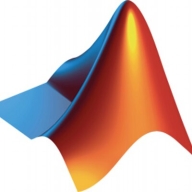

Contrast Security Assess and Polyspace Code Prover are advanced security tools competing in the software protection arena. Based on user reviews, Contrast Security Assess is favored for its pricing and support, while Polyspace Code Prover is notable for its comprehensive features, making it worth the investment.
Features: Contrast Security Assess offers real-time protection, intuitive setup, and seamless integration into DevOps processes. Polyspace Code Prover stands out with sophisticated static analysis capabilities, robust vulnerability identification, and thorough security coverage.
Room for Improvement: Contrast Security Assess users suggest enhanced reporting functionalities, better scalability, and improved user feedback implementation. For Polyspace Code Prover, users request a more user-friendly experience, better documentation, and accessibility improvements.
Ease of Deployment and Customer Service: Deploying Contrast Security Assess is straightforward, with reliable customer service support. Polyspace Code Prover has a more complex deployment process, and its customer assistance receives mixed feedback.
Pricing and ROI: Contrast Security Assess offers competitive pricing with satisfactory ROI, appealing to budget-conscious organizations. Polyspace Code Prover, despite higher setup costs, delivers substantial ROI by enhancing code quality and security, validating its higher cost with improved long-term benefits.
| Product | Market Share (%) |
|---|---|
| Polyspace Code Prover | 1.4% |
| Contrast Security Assess | 1.1% |
| Other | 97.5% |
| Company Size | Count |
|---|---|
| Small Business | 2 |
| Midsize Enterprise | 3 |
| Large Enterprise | 6 |
| Company Size | Count |
|---|---|
| Midsize Enterprise | 1 |
| Large Enterprise | 6 |
Contrast Security is the world’s leading provider of security technology that enables software applications to protect themselves against cyberattacks, heralding the new era of self-protecting software. Contrast's patented deep security instrumentation is the breakthrough technology that enables highly accurate assessment and always-on protection of an entire application portfolio, without disruptive scanning or expensive security experts. Only Contrast has sensors that work actively inside applications to uncover vulnerabilities, prevent data breaches, and secure the entire enterprise from development, to operations, to production.
Polyspace Code Prover is a sound static analysis tool that proves the absence of overflow, divide-by-zero, out-of-bounds array access, and certain other run-time errors in C and C++ source code. It produces results without requiring program execution, code instrumentation, or test cases. Polyspace Code Prover uses semantic analysis and abstract interpretation based on formal methods to verify software interprocedural, control, and data flow behavior. You can use it on handwritten code, generated code, or a combination of the two. Each operation is color-coded to indicate whether it is free of run-time errors, proven to fail, unreachable, or unproven.
We monitor all Application Security Tools reviews to prevent fraudulent reviews and keep review quality high. We do not post reviews by company employees or direct competitors. We validate each review for authenticity via cross-reference with LinkedIn, and personal follow-up with the reviewer when necessary.